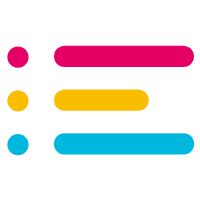Author:CHRIS JONES
A decentralized ecosystem, which aims at serving as the infrastructure for privacy-preserving computation networks and distributed economies.

James QU, currently the CTO at PlatON Network, comes from a traditional corporate background. Before joining PlatON, he worked as an executive director for Morgan Stanley and associate director for UBS Securities Tokyo.
“I focused on electronic and algorithm trading for decades,” he shared.
In 2015, following the Chinese market crash, QU left Morgan Stanley, where he had worked for over nine years, and started an algorithmic trading company, which remains one of the top companies in China till this day.
QU was first introduced to blockchain technology in 2016 and admitted that he realized right away that it would be a disruptive innovation in the financial industry.
“Thanks to open-source code, global collaboration, and other features blockchain has to offer, the industry has rapidly, revealing its immense potential. I switched my focus to blockchain without a second thought in 2017, hoping to do something useful and valuable during the limited time I have,” QU adds.

1. What is PlatON Network?
PlatON is an open-source, community-based blockchain ecosystem, which aims at serving as the infrastructure for privacy-preserving computation networks and distributed economies.
We have been the first company to provide a decentralized privacy-preserving computation network that connects data, algorithms, and computing power through privacy-preserving computation protocols.
Using PlatON, developers can obtain the required resources at low cost, train AI models, and publish them on the network, where those services or agents interact to form a self-organized, collaborative network. Anyone can access AI technologies or become a stakeholder in its development.
The PlatON network creates a new AI universe that delivers superior practical AI functionality today while moving toward the fulfillment of PlatON artificial general intelligence visions.
PlatON plans to redefine the business model by protecting data privacy. It provides an infrastructure to solve data-related critical business problems. Beyond that, if we view it as data sovereignty protection, it will eventually become the distributed and democratic version of AI brain in the coming metaverse.
2. What are the biggest issues surrounding data privacy right now?
Data Centralization. Right now, our digital life has evolved to a point where large technology and social media corporations dominate the market and hold vast amounts of users’ personal data.
Privacy and security. With an increasing amount of data providers, they can potentially misuse it.
Scalability. With larger data sets building billions of connected devices, there will be increasing pressure on existing infrastructure. Today’s client-server model works well but is not likely to scale privacy protection for the next generation web.
And obviously, there are increasing data violation lawsuits and penalties emerging globally. There are more hidden ones that one can see.
3. What does PlatON deliver that rival platforms do not?
I am very glad to see we are not alone; there are more and more followers and rivals since 2018, when the first version of PlatON ‘s white paper was published.
Our company has focused on the privacy field since the beginning; we have built up a privacy-preserving stack, including zkSNARKs, MPC, HE, TEE, and different combinations.
We focus on data sovereignty, which is the crucial point in the digital era, and it hasn’t changed. After years of hard work, there are many great features of the product, and there will be even more of them.
From a blockchain technology perspective, users may find out our Giskard consensus algorithm passed Runtime Verification — a formal scrutiny verification process. Overall performance, according to the test reports, is satisfying. There is no need to construct layer-two solutions for performance enhancements, as it is an advanced type of concurrent BFT consensus algorithm.
From a privacy and AI standpoint, we have launched the world’s first privacy AI framework, Rosetta, that helps developers get involved in TensorFlow and privacy-preserving computation easily. This tool helps build the next-generation data bank service. We are working on collaborations with commercial banks and insurance institutes.
There’s also a version of the privacy token protocol implemented early this year and privacy computation network live later this year. We are also planning to release a series of related protocols and verification computation contracts.
The project’s strength is definitely an experienced cryptography team. We have contributed MPC algorithms to the Ethereum ecosystem on cryptography algorithms with implementations. For example, PlatON got FY19-0157 grants from Ethereum in 2019, which will be used for Secret Sharing Validators. We are working on the new Ethereum Grants FY21-0379 from Ethereum on MPC.
4. You plan to build a DApp ecosystem on the PlatON network; how would that ecosystem interact with other blockchains?
We are expecting the community to build DApps on top of PlatON. Since the platform’s privacy-preserving capability will empower their DApps, reborn as something new, a new business model with new revenues, this will include cross-chain bridges and exchangeable assets. And we will be glad to become the bridge providing exporting cryptography capability to other chains.
In the end, our mission is to develop a large-scale distributed interoperable computational network that supports the expansion of activities and broader business applications. It will empower users to collaboratively lay out the value of data and benefit from transactions while they’ll still be in control of the data sovereignty and privacy.
5. What excites you most about the crypto space right now?
I am quite thrilled about many zkSNARKs-based solutions applicable to layer-one and layer-two, but not limited to the Ethereum universe. I will be even more excited to see MPC, HE growing.
6. How are you encouraging developers to join your platform?
We are an open-source community, and developers all around the world are welcomed to join our platform.
For now, since the PlatON ecosystem is still young, Alaya went live October 24 last year, and our mainnet was launched in April; the developer-friendly tools and environments are still being improved, which means that there is a good chance for them to help us build the infrastructure, middlewares, modules, SDKs, and eventually DApps.
PlatON even held a Hackathon, partnered with Dorahacks, in July with a $170,000 prize pool to encourage the devs’ development on Alaya to build the business sandbox and testing field for the next generation of the financial infrastructure of PlatON.
We have received 20+ submitted projects from privacy storage, games to NFT so far. Interested teams and individuals are welcome to apply as well.
In support of our vision and mission, we also provide a grants program to fund projects valuable to the development of the PlatON ecosystem.
This article is reproduced from https://cointelegraph.com/news/qa-heres-what-you-may-not-know-about-privacy-preserving-computation-networks




